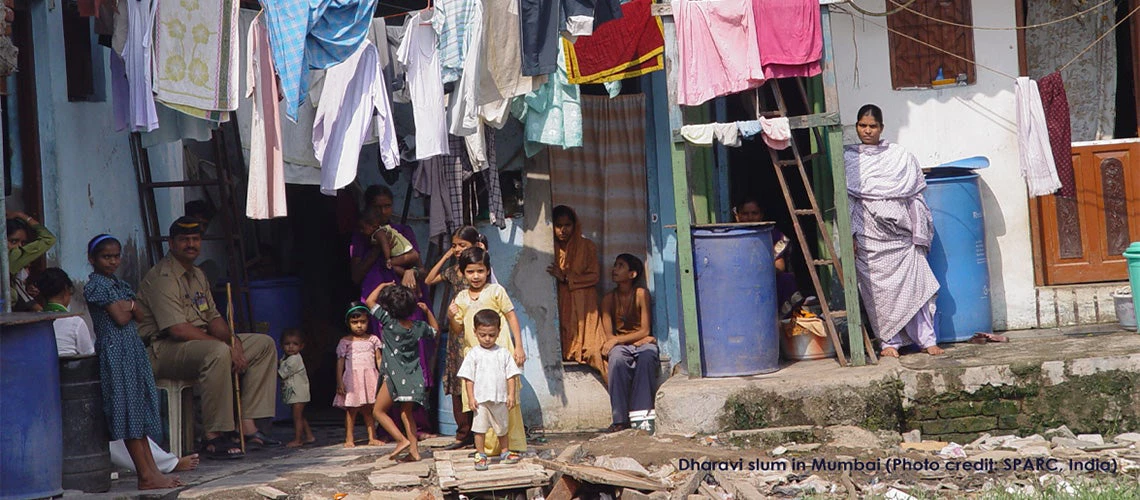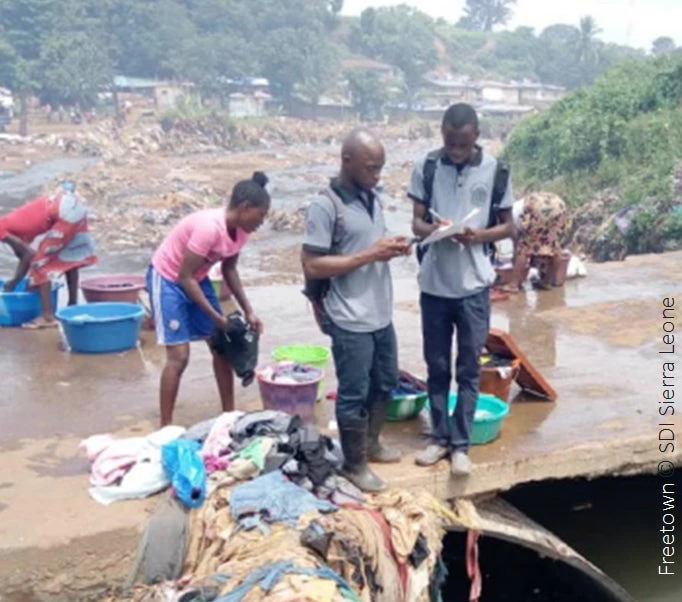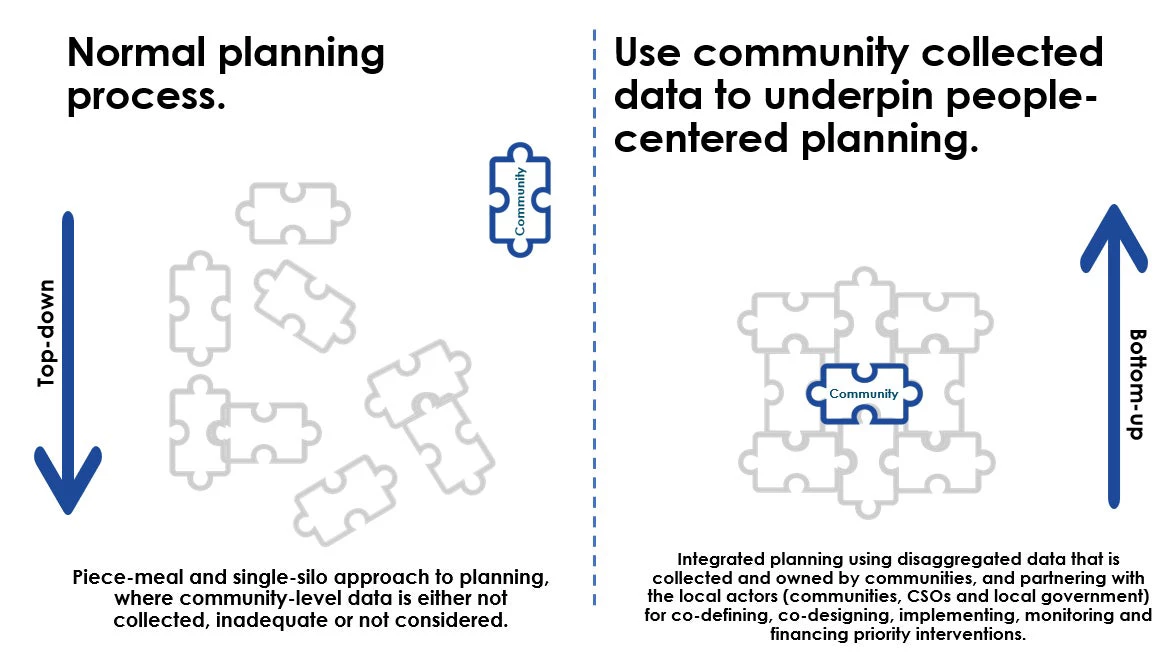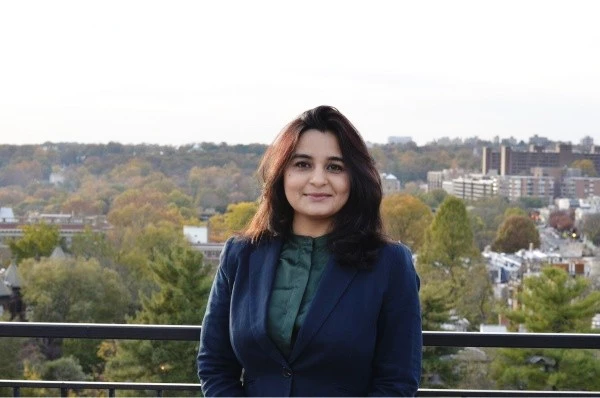 Slums in India with adults and kids sitting by colorful clothes hanging to dry.
Slums in India with adults and kids sitting by colorful clothes hanging to dry.
Back in April 2020, as an emergency response, the World Bank developed a tool to identify contagion risk hotspots within cities. In the first few months of lockdown, the Bank quickly created hotspot maps for 50+ cities using global datasets. However, informal settlements - where residents have shared access to basic services and can’t practice or follow social distancing due to overcrowding – weren’t necessarily identified as hotspots in most cities, due to a lack of disaggregated city-level data. To improve and validate contagion risk hotspot maps, the World Bank partnered with Slum Dwellers International (SDI), their local affiliates (support NGOs and urban poor federations), and Cities Alliance in eight cities.
Lessons learned from this successful pilot go well beyond COVID-19 and its immediate response:
1. Community-led data collection not only provides spatially disaggregated data (which is often missing) but also qualitative data on social capital and priority needs of the local community. For example, while collecting geo-spatial data for informal settlements in selected cities, SDI proactively collected additional qualitative data for 200+ informal settlements accommodating 1.6 million people. That new data showed a disproportionate pandemic impact on lower-income communities. Focus group discussions highlight negative coping strategies—from reducing meals to child labor- that residents adopted to survive the socio-economic pandemic impacts and their priority needs amidst protracted after-effects of the pandemic: unemployment, micro-enterprise failure, evictions, teen pregnancy, school dropouts, and food insecurity.
2. Although other datasets (from remote sensing data to census data) are useful, they cannot substitute granular data required for evidence-based decision-making. Granular data on 11,000 service delivery points within informal settlements of pilot cities improved insights on spatial inequality and existing conditions. For instance, 2000 people share a toilet in a few settlements of Accra, Kisumu, and Freetown. Not only is finding a sanitary public toilet every day difficult, but fear of contagion and fear of assault against women, led to more residents practicing open defecation during the pandemic, thereby compounding other health risks. Additionally, inadequate and interrupted waste collection services during COVID-19 in a few settlements worsened flooding impacts and led to internal displacement.







Join the Conversation